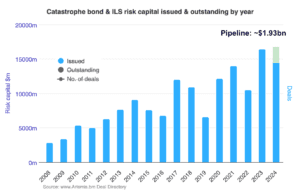Can I still have sex during the coronavirus pandemic?
Can I still have sex during the coronavirus pandemic?
If both of you are healthy and feeling well, are practicing social distancing and have had no known exposure to anyone with COVID-19, touching, hugging, kissing, and sex are more likely to be safe. Apr 15, 2020
Can I get a 4th booster shot?
As of now, the only people authorized for a fourth dose are those with weakened immune systems. This includes teenagers and adults who have had organ or stem cell transplants, are undergoing chemotherapy for cancer, have advanced or untreated H.I.V. or are on immune-suppressing drugs. 14 hours ago
Are masks no longer required in South Africa?
Masks will no longer be required outdoors in South Africa but will continue to be required in public indoor spaces, including shops, offices and public transportation. 2 days ago
Can you still get COVID-19 after vaccine?
Most people who get COVID-19 are unvaccinated. However, since vaccines are not 100% effective at preventing infection, some people who are fully vaccinated will still get COVID-19. An infection of a fully vaccinated person is referred to as a “breakthrough infection.”
What temperature kills the virus that causes COVID-19?
Research on the impact of temperature has shown that SARS-CoV-2, the virus that causes COVID-19, is sensitive to elevated temperatures, with over 99.99% inactivation in only a few minutes at 70°C (158°F). However, this temperature is far outside the limits of human comfort and could damage some building materials.
How long can COVID-19 survive out in the air and on other surfaces?
The scientists found that severe acute respiratory syndrome coronavirus 2 (SARS-CoV-2) was detectable in aerosols for up to three hours, up to four hours on copper, up to 24 hours on cardboard and up to two to three days on plastic and stainless steel. Mar 17, 2020
How long do COVID-19 vaccines last?
It is normal for virus-fighting antibodies—such as those that are stimulated by a COVID-19 vaccine—to wane over time. Monitoring antibody levels in the blood is one way to measure vaccine efficacy and research has found that protection remains high for six months after the second shot of a Pfizer or Moderna vaccine. Feb 14, 2022
Why might there be an increase of coronavirus cases?
Cases tend to rise in areas where: Fewer people are vaccinated, which means a large number of people are vulnerable to infection. Fewer people are wearing masks. More people are gathering indoors to eat, drink, celebrate and socialize without physical distancing. Oct 21, 2021
How many people need to be vaccinated in order to obtain herd immunity to COVID-19?
The percentage of people who need to be immune in order to achieve herd immunity varies with each disease. For example, herd immunity against measles requires about 95% of a population to be vaccinated. The remaining 5% will be protected by the fact that measles will not spread among those who are vaccinated.For polio, the threshold is about 80%. The proportion of the population that must be vaccinated against COVID-19 to begin inducing herd immunity is not known. Dec 31, 2020
Will microwaving my takeout protect me from COVID-19?
According to the CDC, microwaves have been proven to kill bacteria and viruses when zapping the food from 60 seconds to five minutes. But not all microwaves emit the same power and cook in the same way. Apr 14, 2020
Does the COVID-19 vaccine reduce your chances of getting COVID?
COVID 19-vaccines are effective and can lower your risk of getting and spreading the virus that causes COVID-19. COVID-19 vaccines also help prevent serious illness and death in children and adults even if they do get COVID-19.
What kind of booster vaccine is available for COVID-19?
Choosing Your COVID-19 Booster Shot Pfizer-BioNTech or Moderna (COVID-19 mRNA vaccines) are preferred. You may get Johnson & Johnson’s Janssen COVID-19 vaccine in some situations.
Can you get COVID-19 if you already had it and have antibodies?
It is important to remember that some people with antibodies to SARS-CoV-2 may become infected after vaccination (vaccine breakthrough infection) or after recovering from a past infection (reinfected). Nov 10, 2021
How safe is intimacy with a partner during the COVID-19 pandemic?
See full answer If both of you are healthy and feeling well, are practicing social distancing and have had no known exposure to anyone with COVID-19, touching, hugging, kissing, and sex are more likely to be safe. Similarly, sharing a bed with a partner who is healthy should not be an issue.Be aware, though, that the CDC reports that some people may have the virus and not yet have symptoms during the early part of the incubation period (presymptomatic). Additionally, some people never develop obvious symptoms of COVID-19 (asymptomatic). In either case, it’s possible that the virus might spread through physical contact and intimacy. Apr 15, 2020
Can you contract COVID-19 from kissing?
Well, yes. The virus that causes COVID-19 travels in saliva, so, sure, swapping spit with an infected person could transfer the virus to you. Aug 24, 2020





